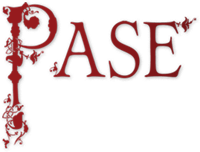Table of Contents
Top of page
Name
Summary
Distribution Map
Property List
Profile
Bibliography
Bottom of page
Vitalis 9
Vitalis the priest ‘of Hurstborne’ (Hampshire), fl. 1086
Male
DWP
4 of 5
Summary
Vitalis 9 was a priest who in 1086 held the church and half a hide embedded within the royal manor at Hurstbourne Tarrant.Distribution map of property and lordships associated with this name in DB
List of property and lordships associated with this name in DB
Subtenant in 1086
| Shire | Phil. ref. | Vill | DB Spelling | Holder 1066 | Lord 1066 | Tenant-in-Chief 1086 | 1086 Subtenant | Fiscal Value | 1066 Value | 1086 Value | Conf. | Show on Map |
|---|---|---|---|---|---|---|---|---|---|---|---|---|
| Hampshire | 1,44 | Hurstbourne Tarrant | Vitalis | - | Edward, king | William, king | Vitalis the priest | 0.50 | 0.70 | 0.70 | B | Map |
| Wiltshire | 1,23b | Burbage | Vitalis | - | Edward, king | William, king | Vitalis the priest | 0.25 | 1.00 | 1.00 | B | Map |
| Totals | ||||||||||||
Profile
Vitalis 9 was a priest who in 1086 held the church of the royal manor at Hurstbourne Tarrant, near the head of the Bourne valley in north-west Hampshire, which he held from the king with ½ hide of associated land. It is possible that the church was, or had originated as, a royal minster and had been granted to Vitalis to provide him with a revenue (Blair 1985: 108, 126; Hase 1988: 63-4).The only other Vitalis occurring in 1086 who is described as a priest in DB was also holding a church with a small amount of land (1 virgate) from the king, in this instance at Burbage in the Vale of Pewsey in east Wiltshire and only 11½ miles from Hurstbourne. The strong probability that in both instances the priest concerned was Vitalis 9 is put beyond reasonable doubt by the fact that the two churches constituted a prebend of Salisbury Cathedral before the mid-twelfth century (Kemp 1999: 178). Notwithstanding the relatively close proximity of these churches to other lands held TRE or TRW by people called Vitalis, there is no reason to consider Vitalis 9 in connection with any of them.
Bibliography
Blair 1985: J. Blair, ‘Secular minster churches in Domesday Book’, in P. H. Sawyer, ed., Domesday Book: A Reassessment (London, 1985), pp. 104-42
Hase 1988: P. H. Hase, ‘The mother churches of Hampshire’, in Minsters and Parish Churches: The Local Church in Transition 950-1200, ed. J. Blair (Oxford, 1988), pp. 45-66
Kemp 1999: English Episcopal Acta 18: Salisbury 1078-1217, ed. B. R. Kemp (Oxford, 1999)
